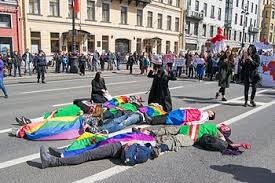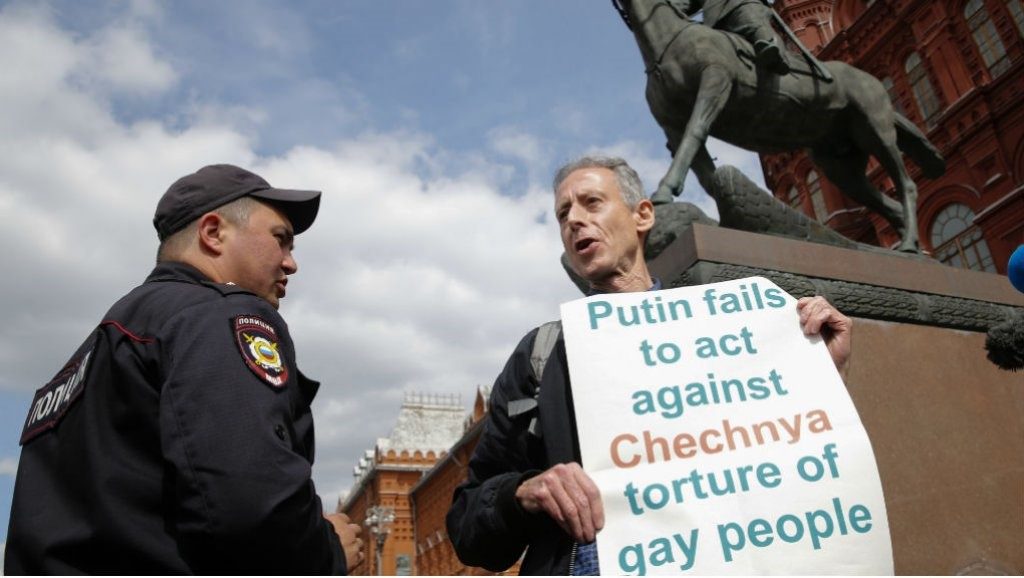Juan Pablo Mendez
The LGBTQ2S+ community has won important legal and social victories around the world in the past twenty years. From the legalization of same-sex marriage in most western democratic states to the advancement of trans rights and representation, the LGBTQ+ rights movement has made notable progress in the protection of a very vulnerable group of individuals. However, despite these gains, major challenges persist, with one of the most pressing issues being the state-sponsored purges of LGBTQ+ individuals in Chechnya.

Since early 2017, there have been a number of reports that the Chechen government has allegedly undertaken a state-sponsored program of imprisoning and murdering people due to their sexual orientation and/or gender expression. Numerous victims of this state-sanctioned violence have indicated that LGBTQ+ individuals, and particularly gay and bisexual men and women, have been the subjects of arbitrary detentions, forced disappearances, torture, and extra-judicial killings. A report by the Organization for Security and Cooperation in Europe (OSCE) found that Chechen authorities routinely kidnap men or women they consider to be gay or bisexual with the purpose of interrogating them and torturing them to find out the names of other gay or bisexual individuals. Trans people have also been the victims of violence and have been forced to flee their homes. Moreover, the OSCE report highlights an event on January 27, 2017, in which Chechen state forces murdered twenty-seven gay men during its initial anti-gay purges. More recently, news reports out of Chechnya indicate that new anti-LGBTQ+ purges have resulted in forty individuals being arbitrarily detained and two being killed as a result of torture.
The Chechen government has continuously denied that any ‘anti-gay’ purges have occurred. However, statements by government officials make it clear that the government, at worst, supports these purges and, at best, turns a blind eye. For example, a government spokesperson claimed in 2017 that there were no anti-gay purges in Chechnya because there were no LGBTQ+ people in Chechnya to begin with and that, if there were, they would have already been killed by their families. Additionally, the OSCE report indicates that the leader of the legislative branch of the Chechen government vowed to rid the country of any “gay people” before the end of 2017.

Based on the evidence available, it is very likely that crimes against humanity are being committed by the Chechen government against sexual and gender minorities, including arbitrary detention, murder, persecution, torture, and deprivation of liberty. Yet, it is unlikely that the victims of this violence would have access to a just and fair legal system within Russia due to the fact that the government itself appears to be aiding in the perpetration of the violence, giving these communities no effective domestic legal recourse.
Nor is there international legal recourse for the Chechen LGBTQ+ community. Although international criminal law is meant to ensure that international crimes, including those that violate fundamental human rights, do not go unpunished, its primary institution (the ICC) can do virtually nothing about the violence against the LGBTQ+ community in Chechnya.
To start, there are jurisdictional challenges. An investigation by the ICC is unlikely due to the fact that Russia is not a state party to the Rome Statute. The only other way that an investigation on the matter could be brought under the Court’s jurisdiction would be through a referral by the United Nations Security Council, of which Russia is a permanent member. Even with a Security Council referral, the terms of the Rome Statute are unavailing. The definition of gender in the Rome Statute completely excludes the entire transgender community, by defining gender as either ‘man or woman’. This narrow definition leaves trans and non-binary individuals without protections from gender-based violence under international criminal law.
The fact that people are being killed, tortured, and arbitrarily detained without any legal repercussions, either domestic or international, demonstrates the very real and important limits on the current conceptualization of ICL and the tangible impact these limits have on people’s lives, especially those who belong to marginalized communities.
For more information on this topic, see the following articles:
Time Magazine: the lives of gay Chechen refugees in Europe and how they continue to be victims of violence even outside of Chechnya. http://time.com/chechnya-movsar/
Globe and Mail: the Canadian government’s secret efforts to provide refugee status for gay Chechens fleeing violence. https://beta.theglobeandmail.com/news/canada-chechnya-gay-asylum/article36145997/
CBC News interview with a gay Chechen refugee who survived the initial ‘anti-gay purge’ in Chechnya https://www.youtube.com/watch?v=CjAhq8zh_Cc
Juan Pablo Mendez is second-year law student and clinician with the International Justice and Human Rights Clinic at the Peter A. Allard School of Law at the University of British Columbia.